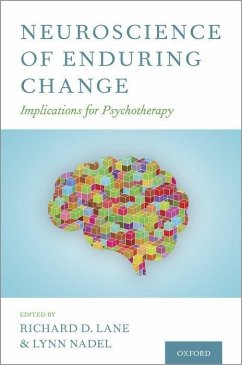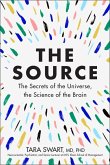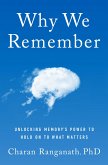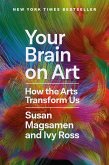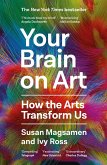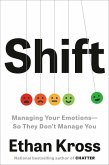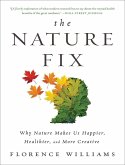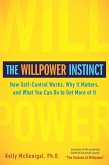Neuroscience of Enduring Change
Implications for Psychotherapy
Herausgeber: Lane, Richard D; Nadel, Lynn
Schade – dieser Artikel ist leider ausverkauft. Sobald wir wissen, ob und wann der Artikel wieder verfügbar ist, informieren wir Sie an dieser Stelle.
Neuroscience of Enduring Change
Implications for Psychotherapy
Herausgeber: Lane, Richard D; Nadel, Lynn
- Gebundenes Buch
- Merkliste
- Auf die Merkliste
- Bewerten Bewerten
- Teilen
- Produkt teilen
- Produkterinnerung
- Produkterinnerung
Neuroscience of Enduring Change presents the first brain-based theory of how enduring change occurs in psychotherapy, the latest research evidence supporting it, a discussion of the application to several leading forms of psychotherapy, and a description of the research agenda going forward.
Andere Kunden interessierten sich auch für
![The Source The Source]() Swart MD, PhD, TaraThe Source12,92 €
Swart MD, PhD, TaraThe Source12,92 €![Why We Remember Why We Remember]() Charan RanganathWhy We Remember14,34 €
Charan RanganathWhy We Remember14,34 €![Your Brain on Art Your Brain on Art]() Susan MagsamenYour Brain on Art19,99 €
Susan MagsamenYour Brain on Art19,99 €![Your Brain on Art Your Brain on Art]() Susan MagsamenYour Brain on Art9,99 €
Susan MagsamenYour Brain on Art9,99 €![Shift Shift]() Ethan KrossShift14,99 €
Ethan KrossShift14,99 €![The Nature Fix The Nature Fix]() Florence WilliamsThe Nature Fix13,99 €
Florence WilliamsThe Nature Fix13,99 €![The Willpower Instinct The Willpower Instinct]() Kelly McgonigalThe Willpower Instinct20,99 €
Kelly McgonigalThe Willpower Instinct20,99 €-
-
Neuroscience of Enduring Change presents the first brain-based theory of how enduring change occurs in psychotherapy, the latest research evidence supporting it, a discussion of the application to several leading forms of psychotherapy, and a description of the research agenda going forward.
Produktdetails
- Produktdetails
- Verlag: Oxford University Press
- Seitenzahl: 504
- Erscheinungstermin: 10. März 2020
- Englisch
- Abmessung: 240mm x 162mm x 35mm
- Gewicht: 882g
- ISBN-13: 9780190881511
- ISBN-10: 0190881518
- Artikelnr.: 58698691
- Herstellerkennzeichnung
- Libri GmbH
- Europaallee 1
- 36244 Bad Hersfeld
- gpsr@libri.de
- Verlag: Oxford University Press
- Seitenzahl: 504
- Erscheinungstermin: 10. März 2020
- Englisch
- Abmessung: 240mm x 162mm x 35mm
- Gewicht: 882g
- ISBN-13: 9780190881511
- ISBN-10: 0190881518
- Artikelnr.: 58698691
- Herstellerkennzeichnung
- Libri GmbH
- Europaallee 1
- 36244 Bad Hersfeld
- gpsr@libri.de
Richard D. Lane is a clinical psychiatrist and psychotherapist trained in cognitive neuroscience and emotion research whose research has focused on brain mechanisms of emotion and emotion regulation, emotional awareness, neurovisceral integration and the mechanisms by which emotion influences susceptibility to sudden cardiac death. His background in cognitive and affective neuroscience is now being integrated with his ongoing experience as a therapist and psychotherapy educator. Lynn Nadel is a contributor to the literature on the hippocampus and its role in spatial memory, cognition, and consolidation, in humans and other animals. An active and influential contributor to the field for about 40 years who has advanced two influential theories of hippocampal function: Cognitive Map Theory and Multiple Trace Theory.
* Overview
* 1. Lynn Nadel and Richard D. Lane. Neuroscience of Enduring Change
and Psychotherapy:
* An Introduction
* Basic Science Perspectives
* 2. Lynn Nadel. What is a Memory That It Can Be Changed?
* 3. Ryan Smith. The Three-Process Model of Implicit and Explicit
Emotion
* 4. Ajay B. Satpute, Erik C. Nook and Melis E. Cakar. The Role of
Language in the Construction
* of Emotion and Memory: A Predictive Coding View
* 5. Jessica R. Andrews-Hanna, Kalina Christoff and Mary-Frances
O'Connor. Dynamic
* Regulation of Internal Experience: Mechanisms of Therapeutic Change
* 6. Joseph E. Dunsmoor and Marijn C.W. Kroes. Emotion-memory
interactions: implications for
* the reconsolidation of negative memories
* 7. Jessica D. Payne. Stress and sleep interact to selectively
consolidate and transform negative
* emotional memories: Implications for Clinical Treatment
* 8. Matthew D. Grilli and Lee Ryan. Autobiographical Memory and the
Self-Concept
* Clinical Psychotherapy Perspectives
* 9. Antonio Pascual-Leone and Leslie S. Greenberg. Emotion Focused
Therapy: Integrating
* Neuroscience and Practice
* 10. Jonathan D. Huppert, Isaac Fradkin and Shawn P. Cahill. CBT for
anxiety disorders:
* Memory reconsolidation theory and its relationship to cognitive,
emotional processing, and
* inhibitory models
* 11. Bruce Ecker. Erasing Problematic Emotional Learnings:
Psychotherapeutic Use of Memory
* Reconsolidation Research
* 12. Hanna Levenson, Lynne Angus and Erica Pool. Viewing
Psychodynamic/Interpersonal
* Theory and Practice through the Lens of Memory Reconsolidation
* 13. Rhonda Goldman and Alyssa Fredrick-Keniston. Memory
Reconsolidation as a Common
* Change Process: Moving Toward an Integrative Model of Psychotherapy
* Integrative Perspectives
* 14. Richard D. Lane. The Affective Origin and Treatment of Recurrent
Maladaptive Patterns
* 15. Ryan Smith, Richard D. Lane, Lynn Nadel, and Michael Moutoussis.
A computational
* neuroscience perspective on the change process in psychotherapy
* 16. Richard D. Lane, Ryan Smith and Lynn Nadel. Neuroscience of
Enduring Change and
* Psychotherapy: Summary, Conclusions and Future Directions
* 1. Lynn Nadel and Richard D. Lane. Neuroscience of Enduring Change
and Psychotherapy:
* An Introduction
* Basic Science Perspectives
* 2. Lynn Nadel. What is a Memory That It Can Be Changed?
* 3. Ryan Smith. The Three-Process Model of Implicit and Explicit
Emotion
* 4. Ajay B. Satpute, Erik C. Nook and Melis E. Cakar. The Role of
Language in the Construction
* of Emotion and Memory: A Predictive Coding View
* 5. Jessica R. Andrews-Hanna, Kalina Christoff and Mary-Frances
O'Connor. Dynamic
* Regulation of Internal Experience: Mechanisms of Therapeutic Change
* 6. Joseph E. Dunsmoor and Marijn C.W. Kroes. Emotion-memory
interactions: implications for
* the reconsolidation of negative memories
* 7. Jessica D. Payne. Stress and sleep interact to selectively
consolidate and transform negative
* emotional memories: Implications for Clinical Treatment
* 8. Matthew D. Grilli and Lee Ryan. Autobiographical Memory and the
Self-Concept
* Clinical Psychotherapy Perspectives
* 9. Antonio Pascual-Leone and Leslie S. Greenberg. Emotion Focused
Therapy: Integrating
* Neuroscience and Practice
* 10. Jonathan D. Huppert, Isaac Fradkin and Shawn P. Cahill. CBT for
anxiety disorders:
* Memory reconsolidation theory and its relationship to cognitive,
emotional processing, and
* inhibitory models
* 11. Bruce Ecker. Erasing Problematic Emotional Learnings:
Psychotherapeutic Use of Memory
* Reconsolidation Research
* 12. Hanna Levenson, Lynne Angus and Erica Pool. Viewing
Psychodynamic/Interpersonal
* Theory and Practice through the Lens of Memory Reconsolidation
* 13. Rhonda Goldman and Alyssa Fredrick-Keniston. Memory
Reconsolidation as a Common
* Change Process: Moving Toward an Integrative Model of Psychotherapy
* Integrative Perspectives
* 14. Richard D. Lane. The Affective Origin and Treatment of Recurrent
Maladaptive Patterns
* 15. Ryan Smith, Richard D. Lane, Lynn Nadel, and Michael Moutoussis.
A computational
* neuroscience perspective on the change process in psychotherapy
* 16. Richard D. Lane, Ryan Smith and Lynn Nadel. Neuroscience of
Enduring Change and
* Psychotherapy: Summary, Conclusions and Future Directions
* Overview
* 1. Lynn Nadel and Richard D. Lane. Neuroscience of Enduring Change
and Psychotherapy:
* An Introduction
* Basic Science Perspectives
* 2. Lynn Nadel. What is a Memory That It Can Be Changed?
* 3. Ryan Smith. The Three-Process Model of Implicit and Explicit
Emotion
* 4. Ajay B. Satpute, Erik C. Nook and Melis E. Cakar. The Role of
Language in the Construction
* of Emotion and Memory: A Predictive Coding View
* 5. Jessica R. Andrews-Hanna, Kalina Christoff and Mary-Frances
O'Connor. Dynamic
* Regulation of Internal Experience: Mechanisms of Therapeutic Change
* 6. Joseph E. Dunsmoor and Marijn C.W. Kroes. Emotion-memory
interactions: implications for
* the reconsolidation of negative memories
* 7. Jessica D. Payne. Stress and sleep interact to selectively
consolidate and transform negative
* emotional memories: Implications for Clinical Treatment
* 8. Matthew D. Grilli and Lee Ryan. Autobiographical Memory and the
Self-Concept
* Clinical Psychotherapy Perspectives
* 9. Antonio Pascual-Leone and Leslie S. Greenberg. Emotion Focused
Therapy: Integrating
* Neuroscience and Practice
* 10. Jonathan D. Huppert, Isaac Fradkin and Shawn P. Cahill. CBT for
anxiety disorders:
* Memory reconsolidation theory and its relationship to cognitive,
emotional processing, and
* inhibitory models
* 11. Bruce Ecker. Erasing Problematic Emotional Learnings:
Psychotherapeutic Use of Memory
* Reconsolidation Research
* 12. Hanna Levenson, Lynne Angus and Erica Pool. Viewing
Psychodynamic/Interpersonal
* Theory and Practice through the Lens of Memory Reconsolidation
* 13. Rhonda Goldman and Alyssa Fredrick-Keniston. Memory
Reconsolidation as a Common
* Change Process: Moving Toward an Integrative Model of Psychotherapy
* Integrative Perspectives
* 14. Richard D. Lane. The Affective Origin and Treatment of Recurrent
Maladaptive Patterns
* 15. Ryan Smith, Richard D. Lane, Lynn Nadel, and Michael Moutoussis.
A computational
* neuroscience perspective on the change process in psychotherapy
* 16. Richard D. Lane, Ryan Smith and Lynn Nadel. Neuroscience of
Enduring Change and
* Psychotherapy: Summary, Conclusions and Future Directions
* 1. Lynn Nadel and Richard D. Lane. Neuroscience of Enduring Change
and Psychotherapy:
* An Introduction
* Basic Science Perspectives
* 2. Lynn Nadel. What is a Memory That It Can Be Changed?
* 3. Ryan Smith. The Three-Process Model of Implicit and Explicit
Emotion
* 4. Ajay B. Satpute, Erik C. Nook and Melis E. Cakar. The Role of
Language in the Construction
* of Emotion and Memory: A Predictive Coding View
* 5. Jessica R. Andrews-Hanna, Kalina Christoff and Mary-Frances
O'Connor. Dynamic
* Regulation of Internal Experience: Mechanisms of Therapeutic Change
* 6. Joseph E. Dunsmoor and Marijn C.W. Kroes. Emotion-memory
interactions: implications for
* the reconsolidation of negative memories
* 7. Jessica D. Payne. Stress and sleep interact to selectively
consolidate and transform negative
* emotional memories: Implications for Clinical Treatment
* 8. Matthew D. Grilli and Lee Ryan. Autobiographical Memory and the
Self-Concept
* Clinical Psychotherapy Perspectives
* 9. Antonio Pascual-Leone and Leslie S. Greenberg. Emotion Focused
Therapy: Integrating
* Neuroscience and Practice
* 10. Jonathan D. Huppert, Isaac Fradkin and Shawn P. Cahill. CBT for
anxiety disorders:
* Memory reconsolidation theory and its relationship to cognitive,
emotional processing, and
* inhibitory models
* 11. Bruce Ecker. Erasing Problematic Emotional Learnings:
Psychotherapeutic Use of Memory
* Reconsolidation Research
* 12. Hanna Levenson, Lynne Angus and Erica Pool. Viewing
Psychodynamic/Interpersonal
* Theory and Practice through the Lens of Memory Reconsolidation
* 13. Rhonda Goldman and Alyssa Fredrick-Keniston. Memory
Reconsolidation as a Common
* Change Process: Moving Toward an Integrative Model of Psychotherapy
* Integrative Perspectives
* 14. Richard D. Lane. The Affective Origin and Treatment of Recurrent
Maladaptive Patterns
* 15. Ryan Smith, Richard D. Lane, Lynn Nadel, and Michael Moutoussis.
A computational
* neuroscience perspective on the change process in psychotherapy
* 16. Richard D. Lane, Ryan Smith and Lynn Nadel. Neuroscience of
Enduring Change and
* Psychotherapy: Summary, Conclusions and Future Directions

